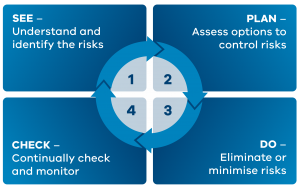Change is coming…Australian first criminally enforceable general environmental duty puts Victorians on notice

Australian first criminally enforceable general environmental duty puts Victorians on notice
Victorians have eight months to get ready for new environmental regulations—eight months before everyone who has the potential to disturb, contaminate, pollute, or damage the environment or cultural heritage will need to be aware and take ‘reasonably practicable steps to eliminate or minimise’ any risk posed to human health or the environment.
The Environment Protection Amendment Act 2018 will come into effect in July 2020, introducing, in part or in full, each of the 48 recommendations made to EPA Vic by an independent inquiry in 2016.
The centrepiece of the amendment is the new general environmental duty—an Australian first in making a general environmental duty criminally enforceable.
Under it, the EPA Vic outlines a four-step process to comply with this regulation:
- Understand and identify the risks.
- Assess ways to remove and then minimise risks.
- Implement reasonably practicable controls to remove risks, or to minimise harm when all risks cannot be removed.
- Continually check and monitor controls.
What does this mean for Victorian businesses?
The next eight months are crucial for Victorian businesses to train their staff on their environmental duties. The worker, on the ground, is the most at risk member of your staff when it comes to environmental compliance. They are the ones driving the vehicles, handling the machinery, dealing with waste, and doing the activities that may disturb the environment.
While the business owner, corporate team, and environmental manager understands compliance, negotiates the approvals’ process to be able to undertake activities, writes the environmental management plans and submits them as company policy documents, they aren’t the people, on the ground, identifying and minimising environmental harm. Companies face a disconnect between competently crafted environmental management plans and what is occurring in reality, and the result is a high risk of reputational harm and financial liability that is borne by the company.
Green Ticket has been developed to help companies manage this disconnect and help corporate teams and environmental managers ensure their hard work filters through to those undertaking the activity.
Green Ticket Director, Bill Haylock, said Green Ticket training courses were aimed at workers on the ground and were delivered so that all learning styles were appealed to.
“We use adult education principles in every course and so every core environmental rule that we educate workers on is delivered in a visual manner, with spoken word, written down, and examples are shown with inbuilt quizzes for our kinaesthetic learners,” Mr Haylock said.
“We educate workers on what to do when they see something (like a spill or water leaking), how to prevent any harmful disturbance when they are working, and when to escalate their concerns to their supervisors. We do this in a manner that doesn’t give the worker information they can’t use,” he said.
Green Ticket offers 22 courses ranging from general environmental awareness for land disturbance operations and construction operations, to very specific courses about incidents and hazards management, acid sulfate soil, chemical and hydrocarbon management, erosion and sediment control, and more.
“We want to help Victorian companies train their workers, so they are prepared for the new legislation when it comes into effect. Our training will ensure the worker implements plans,” Mr Haylock said.






